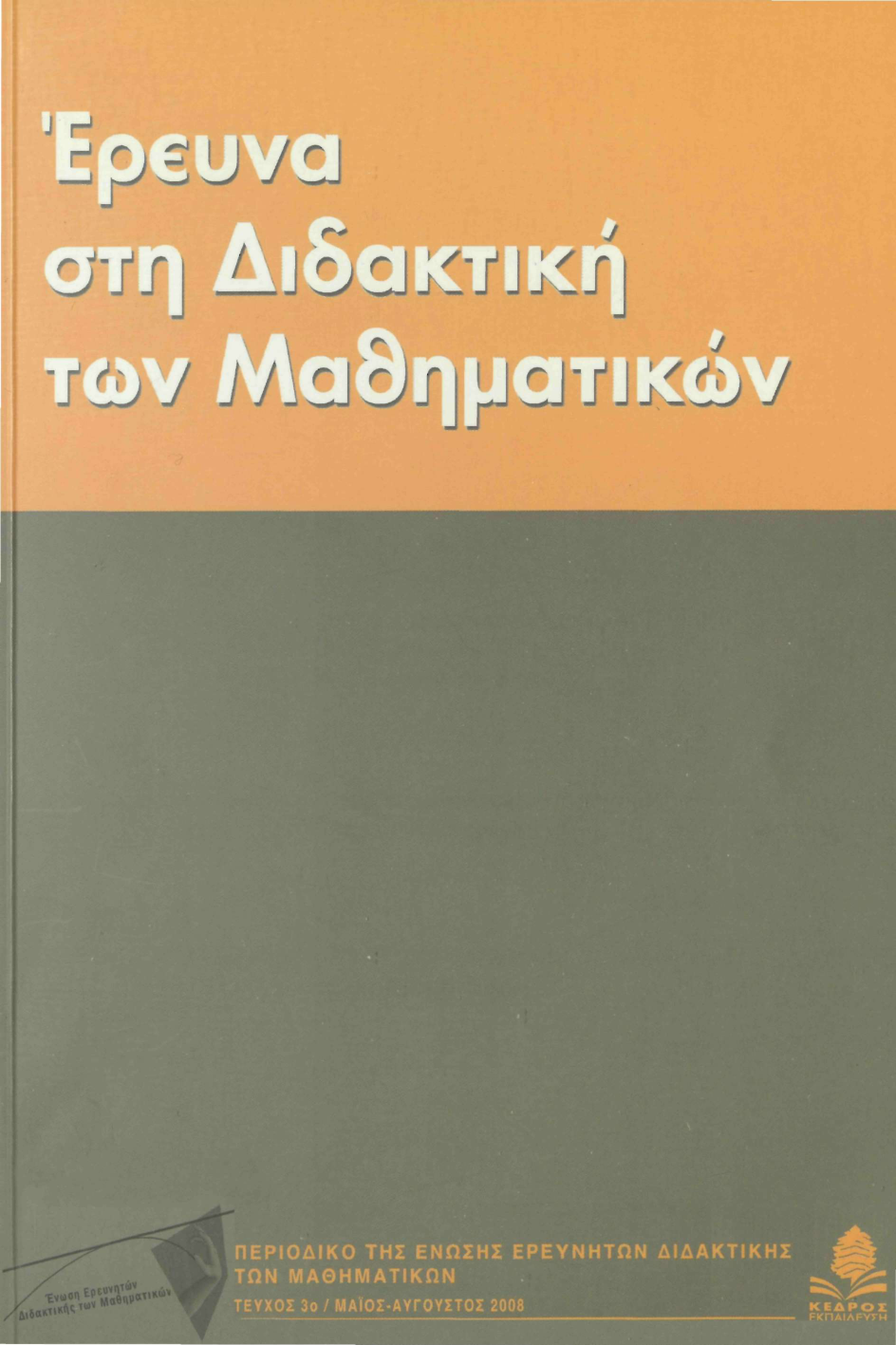MENTAL CALCULATIONS IN THE PROCESS OF OVER PASSING THE FIRST TEN NUMBERS: STRATEGIES AND PERFORMANCES OF 1RST AND 2ND GRADE STUDENTS

Abstract
The purpose of the present study was to investigate primarily whether first grade and second grade students have acquired mental calculation capabilities needed in the process of over passing the first ten numbers and the type of strategies they use. At the same time, the study investigated whether there were any significant differences in ti: e performance of students in terms of preferred strategies. Data were collected from 98 first grade students and 58 second grade students from five randomly selected public elementary schools of the city of'Patras. The students participated in three experiments and were tested individually. Results showed that students in both grades employed recall strategies and construction strategies; more specifically, the choice of strategy was found to depend on the type of intermediate sums in the calculation process. In general the findings of the present study seem to confirm the results of earlier studies conducted in Greece or in other countries.
Article Details
- How to Cite
-
Καραντζής (Ioannis Karantzis) Ι. (2018). MENTAL CALCULATIONS IN THE PROCESS OF OVER PASSING THE FIRST TEN NUMBERS: STRATEGIES AND PERFORMANCES OF 1RST AND 2ND GRADE STUDENTS. Research in Mathematics Education, (3), 9–29. https://doi.org/10.12681/enedim.18816
- Section
- Articles

This work is licensed under a Creative Commons Attribution 4.0 International License.
Authors who publish with this journal agree to the following terms:
Authors retain copyright and grant the journal right of first publication with the work simultaneously licensed under a Creative Commons Attribution licence that allows others to share the work with an acknowledgement of the work's authorship and initial publication in this journal.
Authors are able to enter into separate, additional contractual arrangements for the non-exclusive distribution of the journal's published version of the work (e.g. post it to an institutional repository or publish it in a book), with an acknowledgement of its initial publication in this journal.
Authors are permitted and encouraged to post their work online (preferably in institutional repositories or on their website) prior to and during the submission process, as it can lead to productive exchanges, as well as earlier and greater citation of published work (See The Effect of Open Access).


